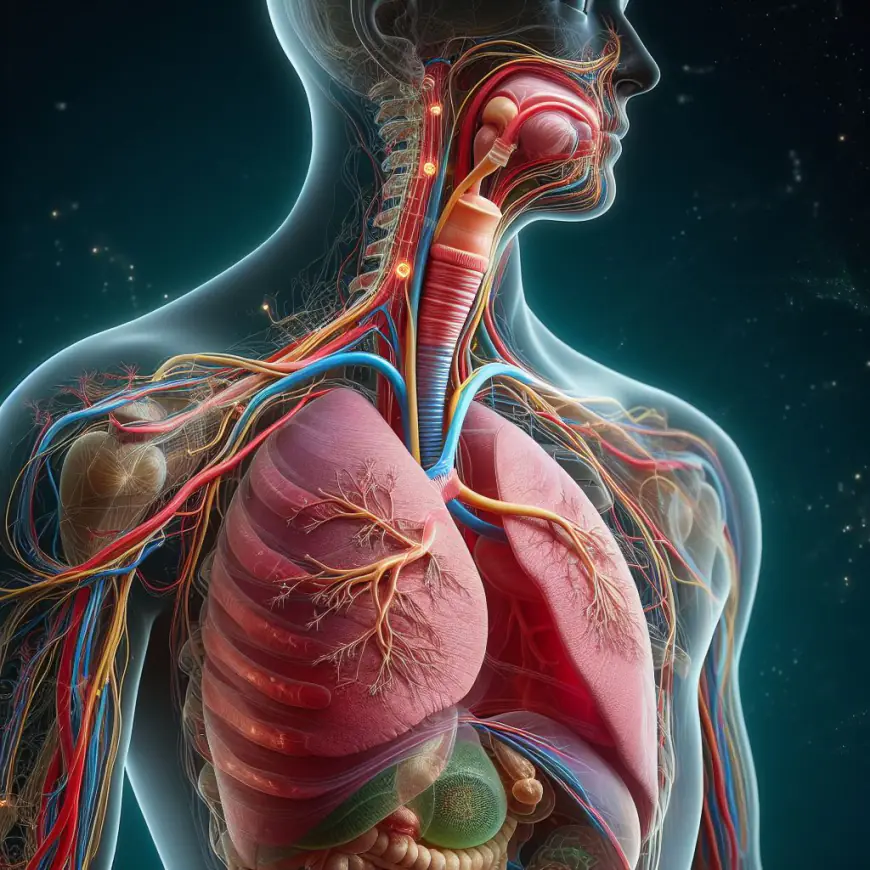Why do we breathe oxygen and cannot breathe any other gas?
“Explore the vital role of oxygen in our survival and why other gases can’t replace it in our breath of life.”

The Breath of Life: Understanding Our Need for Oxygen
Introduction
Breathing is an involuntary act, often unnoticed, yet it is the very rhythm of life. From our first gasp as a newborn to our peaceful sighs of sleep, the act of inhaling oxygen and exhaling carbon dioxide is as rhythmic as the tides. But why do we breathe oxygen, and why can’t we breathe any other gas? This article delves into the scientific intricacies of our reliance on oxygen, exploring the biological necessity that dictates this preference.
The Role of Oxygen in Human Physiology
Oxygen: The Fuel of Cellular Processes Our bodies are complex machines that require energy to function. This energy is derived from a process known as cellular respiration, where oxygen plays a critical role. Oxygen is essential for breaking down glucose molecules to release energy, a process that powers every cell in our body. Without oxygen, our cells would cease to function, leading to the failure of vital organs and ultimately, life itself.
The Inefficiency of Other Gases While the air around us is a mixture of gases, oxygen is the only gas that effectively supports the intricate process of energy production in our cells. Other gases, such as nitrogen, which makes up a significant portion of our atmosphere, are inert and do not participate in the chemical reactions required for cellular respiration.
The Evolutionary Preference for Oxygen
Oxygen’s Reactive Nature: A Double-Edged Sword Life on Earth has evolved to utilize oxygen due to its highly reactive nature. This reactivity allows for the efficient release of energy from food molecules. However, this same reactivity can also lead to the production of harmful by-products known as reactive oxygen species (ROS). Our bodies have developed complex antioxidant systems to manage and neutralize these ROS, striking a delicate balance between utilizing oxygen’s benefits and mitigating its risks.
Why Not Nitrogen? Nitrogen, despite being abundant, is remarkably stable and requires significant energy to be broken down and utilized in biological processes. This stability makes nitrogen an unsuitable candidate for the high-energy demands of cellular respiration.
The Mechanics of Breathing: How We Inhale Oxygen
The Journey of an Oxygen Molecule The process of breathing begins when we inhale air through our respiratory system. Oxygen travels down the trachea, through the bronchi, and into the lungs, where it reaches the alveoli. These tiny air sacs are surrounded by a network of capillaries, where oxygen diffuses into the blood and is transported to every cell in the body.
Exhaling: The Release of Carbon Dioxide As a by-product of cellular respiration, carbon dioxide must be expelled from the body. This waste gas diffuses from the blood into the alveoli and is exhaled, completing the respiratory cycle.
The Impact of Oxygen on Health and Disease
Oxygen Deficiency: Hypoxia and Its Consequences A lack of oxygen, known as hypoxia, can have severe implications for health. Hypoxia can result from various conditions, such as lung diseases, heart problems, or exposure to high altitudes. The body’s response to hypoxia includes increased heart rate, shortness of breath, and, in severe cases, organ damage or failure.
Oxygen Therapy: Breathing Support for Medical Conditions In medical settings, supplemental oxygen is often provided to patients experiencing difficulty breathing or low oxygen levels in their blood. This therapy ensures that tissues receive adequate oxygen to maintain cellular function and overall health.
Conclusion: The Indispensable Nature of Oxygen
Oxygen is not just a component of the air we breathe; it is the very essence of our being. The intricate dance of inhaling oxygen and exhaling carbon dioxide is a testament to the marvels of evolution and the complexity of human physiology. As we go about our daily lives, let us take a moment to appreciate the simple, yet profound act of breathing—the silent pulse that sustains us.
What's Your Reaction?








































